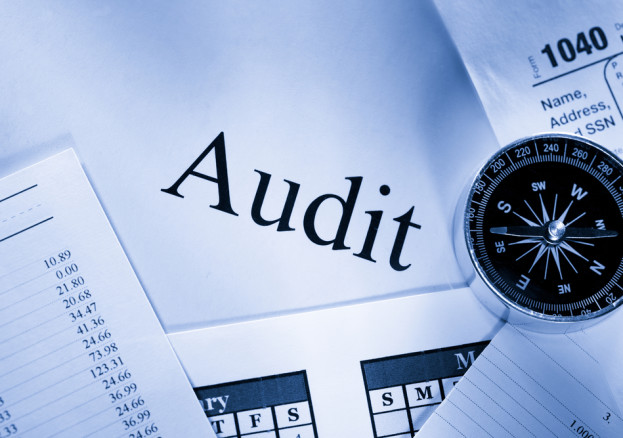
Auditors perform (internal) financial and risk management audits and independent statutory (external) financial audits of commercial and public sector organisations.
External auditors are qualified accountants who produce independent, professional reviews, making sure that information collated and submitted provides a ‘true and fair’ view of the organisation’s past financial performance and current financial position
Statutory audits are designed to provide confidence to shareholders and investors, giving all the vital information needed in a written statement to make an informed investment judgement.
External auditors don’t purely audit commercial organisations. They may also review public service organisations, such as housing associations, charities, colleges and universities, or government departments, like the Ministry of Defence. This is to make sure public money is well spent and to see if any savings can be made.
Audit firms may offer a range of services in addition to financial verification This includes checking that organisations are meeting legal and voluntary obligations in such areas as corporate and social responsibility, IT and general business risks and health and safety. It will then be the role of the organisation’s management to review compliance and ensure that the organisation is adhering to rules, codes of practice, business ethics, internal guidelines and principles.
Tasks
- Planning assignments to make sure audit staff are fully aware of the client’s business and relevant issues
- Examining interim and end-of-year accounts
- Collecting and reviewing financial accounts and other operational data
- Challenging the effectiveness of current working practices, updating executive and non-executive managers on risks identified and recommending actions to be taken
- Selecting samples of business areas and accounts for testing
- Conducting departmental reviews and interviewing key personnel about working practices
- Identifying and recording material and significant errors, deficiencies or other variations from standard, reporting them to the audit supervisor (depending on the size of the organisation, this may be done by the internal audit function)
- Assessing financial risk controls
- Ensuring value for money is delivered (again, this may be done by the organisation’s internal auditors)
- Preparing and submitting clear and concise audit reports
Entry Qualifications
If you want to become an external auditor, there are typically three main routes in. Entry points depend on previous experience and/or qualifications:
- Accountants that have qualified with one of the Recognised Qualifying Bodies (RQBs) in the UK can switch straight into an external audit position.
- Joining a graduate training programme, usually with a 2:1 degree, and then undertaking a professional accountancy qualification with one of the RQBs
- Trainee accountants, usually with A-Levels / H Grades or equivalent, working towards a RQB professional accountancy qualification.
It may be possible to enter the role after completing an accounting technician qualification such as Association of Accounting Technicians (AAT), the Association of Chartered Certified Accountants (ACCA) Foundations in Accounting (FIA), or the ICAEW (Institute of Chartered Accountants in England and Wales) Certificate in Finance, Accounting and Business (CFAB) but you will need to go through the same programme and professional qualifications as direct graduate entrants. These qualifications can also be taken through an accounting apprenticeship:-
- Level 2 Apprenticeship in Accounting (England, Wales, Scotland and Northern Ireland)
- Level 3 Apprenticeship in Accounting (England, Wales, Scotland and Northern Ireland)
- Level 4 Apprenticeship in Accounting (England, Wales and Scotland)
Typically, employers accept any degree subject, usually a 2:1 or equivalent. Certain degrees may provide exemption from some of the professional examinations.
Professional Qualifications
External auditors must have a professional accountancy qualification from one of the RQBs:
- Association of Chartered Certified Accountants (ACCA)
- Association of International Accountants (AIA)
- Chartered Accountants Ireland (CAI)
- Chartered Institute of Public Finance & Accountancy (CIPFA)
- ICAEW (Institute of Chartered Accountants in England and Wales)
- Institute of Chartered Accountants of Scotland (ICAS)
Once qualified as an accountant, you can then specialise as an external auditor. In order to accept appointment as an external auditor and work in public practice, you’ll need to hold a practising certificate from a RQB. The criteria for gaining a practising certificate vary but generally you’ll need to undertake a period of post-membership training in external audit and complete a training record. Qualifying with the Chartered Institute of Management Accountants (CIMA) means you’d only be able to conduct internal audits. If you study with the Chartered Institute of Public Finance and Accountancy (CIPFA), you will be able to conduct audits in the public sector only, but not private companies.
Salary
Entry level positions on post school and college training schemes, or equivalent, start at approximately £15,000 per annum. With the right experience, qualifications and skills you could progress to management roles and earn in excess of £70,000 per annum. This does not include potential bonuses and additional benefits. Salaries will vary considerably based on location and employer.
Trends
Because external auditors provide an outside viewpoint of the financial status of commercial and public sector organisations they’re not employed in-house. Instead, they can work for the National Audit Office (NAO), Audit Scotland, Wales Audit Office and the Northern Ireland Audit Office.
In England, the NAO audits central government departments and the Audit Commission (which is will continue to audit public bodies like local authorities and the NHS throughout 2011/2012). They can also be employed by a Chartered Accountancy firm. Although the large accountancy practices have offices in and around London and other major cities, there are often a wide variety of regional opportunities too
. Both the Audit Commission and the NAO often place trainee auditors in regional offices. There are usually extensive opportunities for external audit staff to travel domestically and overseas, particularly in public practice when auditing global businesses. Overseas secondments in public practice may also form a crucial part or training.
